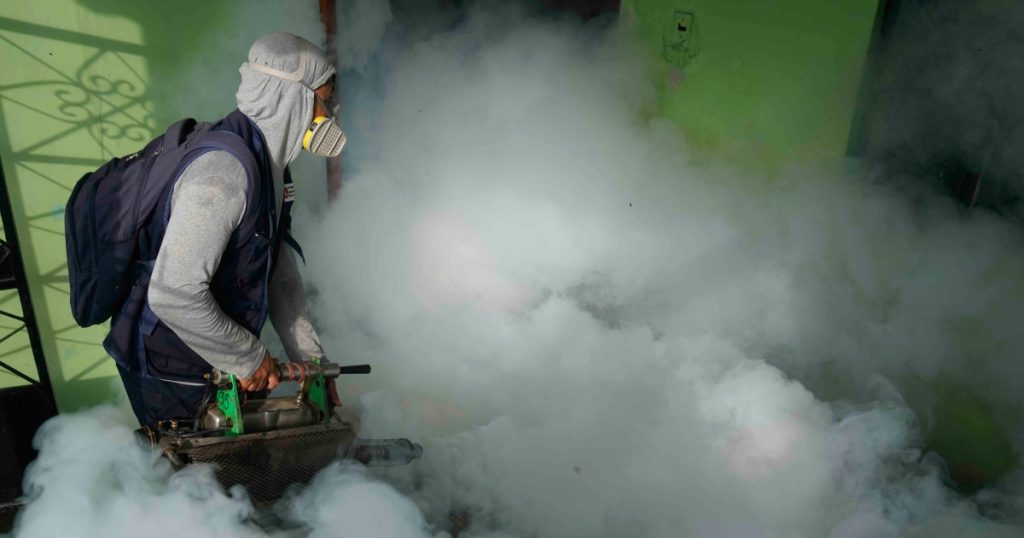The Pan American Health Organization (PAHO) has raised alarm over a significant increase in dengue cases across Latin America and the Caribbean. PAHO Director Dr. Jarbas Barbosa reported that as of March 26, the region had recorded over 3.5 million cases of dengue and more than 1,000 deaths. This represents a threefold increase compared to the same period in 2023, which was a record year with over 4.5 million cases reported. The hardest-hit countries in Latin America are Brazil, Paraguay, and Argentina, where warm and rainy weather has created conducive breeding conditions for mosquitoes.
Barbosa highlighted an uptick in dengue cases in countries like Barbados, Costa Rica, Guadeloupe, Guatemala, Martinique, and Mexico, where transmission rates typically peak in the second half of the year. U.S. embassies in the region have been issuing health alerts urging people to take preventive measures such as covering arms and legs, using mosquito repellent, and eliminating mosquito breeding sites like stagnant water. Puerto Rico declared a dengue public health emergency due to a surge in cases, particularly in the capital, San Juan. The Centers for Disease Control and Prevention (CDC) warns that dengue viruses are transmitted to humans through infected Aedes species mosquitoes, with symptoms ranging from mild to severe and potentially life-threatening.
According to the CDC, the most common symptom of dengue is fever, with additional symptoms including severe headaches, nausea, vomiting, rash, and body pain. Severe dengue can occur in about 5% of cases and can lead to death if not promptly treated. Barbosa emphasized the importance of a collective effort in addressing the dengue problem, calling for community engagement to eliminate mosquito breeding sites, protect against mosquito bites, enhance preparedness in health services for early diagnosis and management, and educate the population about dengue symptoms and the importance of seeking medical attention promptly.
The surge in dengue cases has prompted health authorities to ramp up efforts to contain the spread of the virus, with a particular focus on mosquito control and public awareness. In addition to the measures advised by health agencies, such as using mosquito repellent and eliminating standing water, communities are being urged to play an active role in combating the mosquito population. This includes efforts to educate the public about dengue prevention and symptoms, as well as encouraging early medical intervention for those displaying signs of the infection. The current situation underscores the need for proactive measures to curb the spread of dengue and protect vulnerable populations from the potentially deadly consequences of the virus.
The dengue outbreak in Latin America and the Caribbean is a significant public health concern that requires a coordinated response from governments, healthcare providers, and communities. The unprecedented rise in cases has put a strain on healthcare systems and has raised awareness about the importance of early detection and treatment. Efforts to control the dengue outbreak are being intensified, with a focus on mosquito control, public education, and community engagement. By working together to address the root causes of the surge in cases, stakeholders can mitigate the impact of dengue on communities and prevent further spread of the virus.
The current dengue outbreak serves as a stark reminder of the ongoing threat posed by mosquito-borne diseases in the region. With climate change and other factors contributing to the proliferation of mosquitoes, there is a need for sustained efforts to combat the spread of dengue and other infectious diseases. By implementing comprehensive mosquito control strategies, enhancing public awareness, and strengthening healthcare systems, countries in Latin America and the Caribbean can better prepare for and respond to future outbreaks. The collaboration between governments, healthcare providers, and communities is essential in addressing the dengue crisis and safeguarding the health and well-being of populations in the region.


